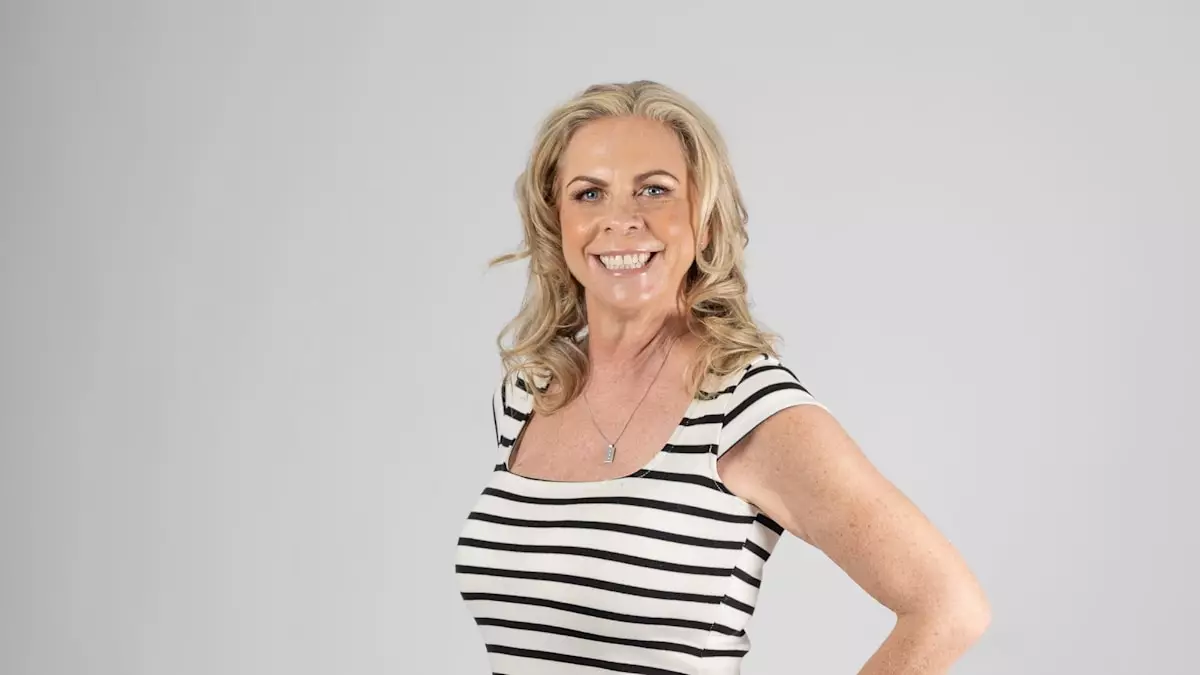For many women, the onset of perimenopause can be a surprising and challenging phase of life, as illustrated by the experiences of Charlotte Body, who began to notice symptoms at the age of 47. Often, the notion of menopause is associated with older age, and Charlotte’s initial response reflected a common sentiment: disbelief and denial. This time of transition is marked by a constellation of physical and emotional changes, which can leave women feeling isolated and overwhelmed. Recognizing that they are not alone in this journey is a crucial first step toward acceptance and empowerment.
Charlotte’s candid admission of her struggles highlights the inner turmoil that many women face during this transitional period. Symptoms such as anxiety, sudden weight gain, and alterations in libido can shake one’s self-identity deeply. The emotional weight of these changes often leads to a sense of despair, especially for someone who identifies as extroverted. However, as Charlotte evolved through this tough phase, she arrived at a place of acceptance, defining her experience not by the symptoms, but by the strength she gained through overcoming them.
One major turning point in Charlotte’s journey was her decision to embrace vulnerability. Sharing her experiences openly, she began to demystify the stigma surrounding menopause. By addressing her symptoms candidly instead of hiding them, she transformed her embarrassment into empowerment. This revelation is pivotal—many women going through similar symptoms may suffer in silence, fostering anxiety and discomfort. Therefore, Charlotte’s approach offers a refreshing and necessary perspective: by owning one’s experience, women take control of their narrative, significantly reducing the psychological burden of perimenopause.
Acknowledging menopause for what it is—a natural life phase—enables women to shift focus from fear and denial to understanding and acceptance. Charlotte’s advice to openly state, “I’m having a really menopausal day today,” empowers others to voice their experiences. This simple acknowledgment can foster connections, open dialogue, and even humor, allowing women to navigate this phase with greater ease and support from their peers.
As Charlotte navigated her menopause journey, she realized that self-care means adapting to new realities. The strategies that served her well in her forties needed adjustment. Charlotte’s transition from high-intensity exercise like spin classes to weight training exemplifies this need for flexibility. Such lifestyle changes are not merely physical; they represent a broader shift in how women perceive their bodies during menopause.
Embracing this new chapter also brings the importance of mental health to the forefront. It is vital for women to recognize that they may need to forge new identities in their fifties, which can include establishing new wellness routines, emotional resilience, and relational dynamics. Just as Charlotte noted changes in physical activity, women may also find themselves redefining their social lives and understanding partnerships within the emotional landscape of menopause.
Charlotte’s experience also emphasizes that menopause does not only affect women—it has profound implications for their partners as well. This era can strain relationships, particularly when partners struggle to understand the changes and what they mean for their emotional and sexual connections. By openly communicating about these challenges, couples can foster a supportive environment that encourages understanding rather than resentment. Charlotte’s personal revelations about loss of libido illustrate how significant these discussions can be.
Treatment options, such as Hormone Replacement Therapy (HRT), can catalyze a powerful transformation and help rekindle intimacy. Such solutions, combined with open dialogue and education, can lead to reclamation of desire and connection once thought lost. Charlotte’s return to feeling “sexy again” encapsulates a critical takeaway: menopause is not an end but rather a transformation that can lead to renewed vitality.
Through her struggles, Charlotte created Pause Live, an initiative dedicated to educating women about menopause and fostering a supportive community. This kind of platform is essential, as it helps demystify the experience and empowers women to transform their discomfort into a shared and collective strength. By equipping women with knowledge and connections, initiatives like Pause Live enable them to embrace this natural transition with confidence.
Charlotte’s story ultimately serves as an uplifting reminder that menopause is a phase of life that should be acknowledged and embraced rather than dreaded. By fostering open conversations, redefining self-care, and building supportive networks, women can navigate menopause not just as survivors, but as empowered individuals ready to embrace their evolving identities.

